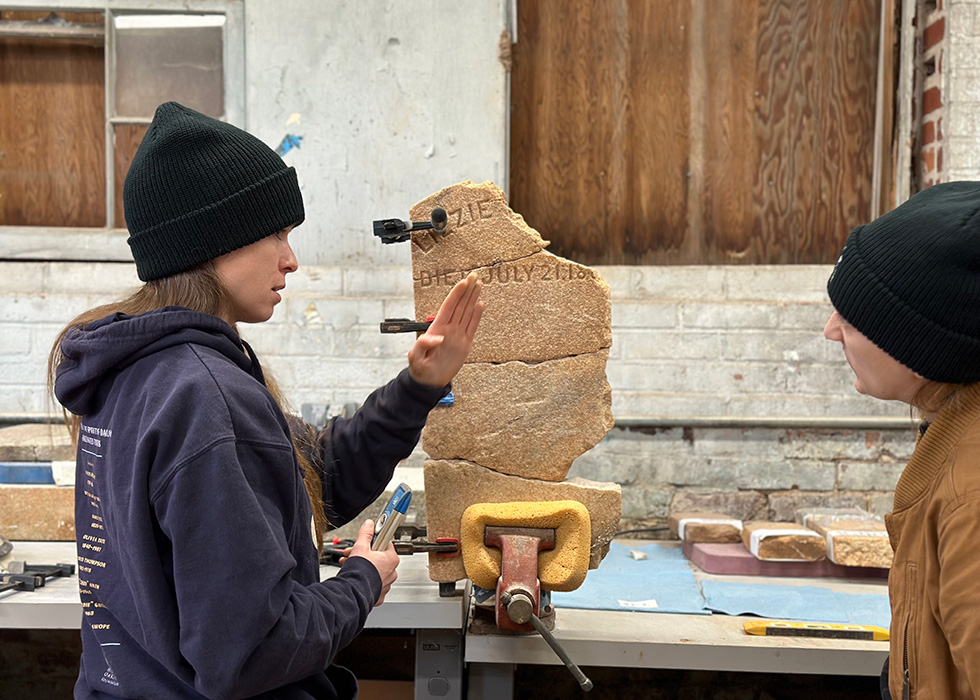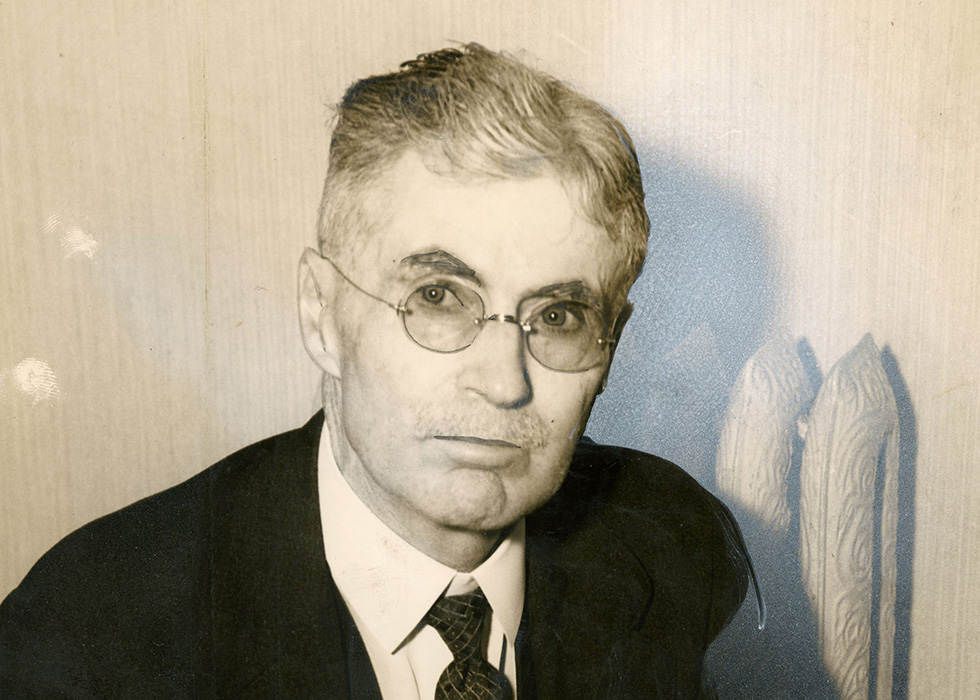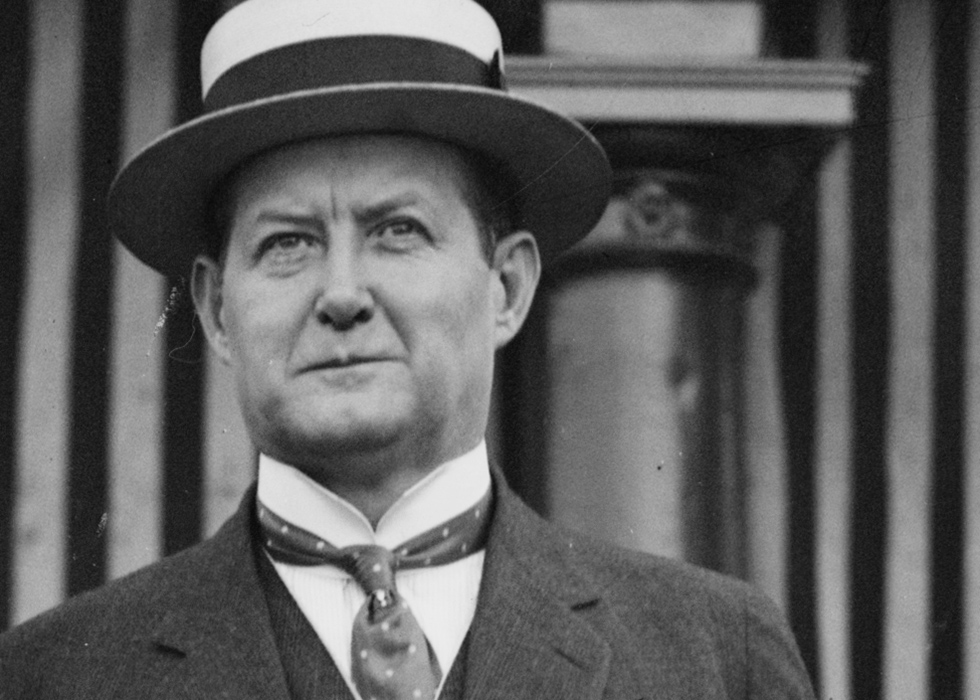
Resident Spotlight: Morris Rich and Rich’s Department Store
Ask any Atlantan of a past generation about their memories of growing up in the city and chances are you will hear a story about Rich’s Department Store. Considered a southern institution, Rich’s was the shopping destination in Atlanta for more than a century. The retail giant is recognized for its customer service policies and is often associated with nostalgic memories of the holidays. The story of Rich’s is intertwined with the story of Atlanta and that narrative begins with Morris Rich – a Hungarian immigrant, an enterprising entrepreneur, and an Oakland Cemetery resident.

Born in Hungary in 1847, Mauritius Reich and his brother William immigrated to the United States in 1859 and settled in Cleveland. The brothers anglicized their surnames from Reich to Rich and Mauritius changed his first name to Morris. Two younger brothers, Daniel and Emanuel, eventually immigrated as well. As legal aliens, the Rich men could not be conscripted into military service. As the Civil War raged, they found employment as salesmen and traveled around Ohio to promote their wares. After the bloody conflict ended, the Rich brothers left Ohio and made their way south to war-torn Georgia in search of new opportunities.
A Business is Born
In 1867, 26-year-old Morris borrowed $500 from William to open a dry goods store at 36 Whitehall Street. Located near Atlanta’s railroads, Whitehall Street was the growing city’s retail center. M. Rich and Co. prospered in its early years, setting itself apart from other retailers by allowing customers to buy items on credit or barter for goods with chickens, eggs, and other farm produce. Daniel and Emanuel later joined the growing enterprise and the business was renamed M. Rich and Bros. Co.

The business continued to expand throughout the end of the 19th century and the store moved several times to new locations on Whitehall Street. In 1924, M. Rich and Bros. Co. moved to its flagship store at 45 Broad Street. Located between Alabama Street and Hunter Street (now Martin Luther King, Jr. Drive), Rich’s remained a popular downtown shopping destination for Atlantans for the next several decades.
Committing to the Customers
Rich’s liberal exchange and credit policy, which allowed full refunds for the return of noticeably used items, is one example of the company’s excellent customer service and commitment to supporting their customers, even if it hurt their bottom line. In 1914, a dramatic drop in the price of cotton left many farmers on the brink of financial ruin. Rich’s decision to accept bales of cotton as payment for merchandise meant that many Georgia farmers could feed and clothe their families while working to overcome the cotton crisis. This policy resulted in a financial loss but endeared the department store to customers for decades.
In the early 1920s, Rich’s enacted a liberal exchange and credit policy whereby any item could be exchanged and nearly anybody could receive store credit. It was not uncommon for Rich’s to provide refunds on merchandise not carried by its stores or to provide full refunds on noticeably used items. Rich’s operated under the philosophy that all people were inherently honest and that going the extra mile for customers would benefit the company in the long run. Although this approach had many detractors, the store’s continued sales growth helped prove the soundness of this philosophy and endeared Rich’s to its customers.

While facing a cash shortage during the Great Depression, the city of Atlanta attempted to pay teachers and municipal workers with scrip, a paper note that could be accepted as a cash alternative. Many Atlanta merchants refused to accept scrip. Those who did often marked up their prices and refused to give change back in cash. In December 1930, the city government was unable to pay teachers cash and instead offered scrip. Rich’s stepped in and agreed to cash the teacher’s scrip at face value (without requiring a store purchase) until the city government could reimburse the store. Teachers were able to pay rent, buy groceries, and ensure Christmas presents for their families that year. Rich’s received loyal customers for life.
Rich’s became the center of controversy during the Civil Rights Movement. African American customers could shop inside Rich’s but were denied entrance to the Magnolia Room, the store’s iconic restaurant and tea room. In October 1960, dozens of college students walked into the Magnolia Room and conducted a sit-in. More than 50 protesters were arrested, including Dr. Martin Luther King, Jr. Additional sit-ins soon followed and local activists launched a boycott of major downtown merchants. By the fall of 1961, Rich’s and other downtown stores successfully integrated.
Rich’s Holiday Traditions
The holiday celebrations associated with Rich’s flagship store were initiated by Morris Rich’s successors. In 1948, a 70-foot pine tree was placed on the roof of the downtown department store, decorated with lights and ornaments, and lit on Thanksgiving night. Over the years, the Lighting of the Great Tree became an Atlanta tradition. Large crowds turned out every year to enjoy holiday festivities and listen to Christmas carols sung by choirs. Thousands of lights would illuminate at the highest note of “O Holy Night,” and the tree would remain lit until New Year’s Eve.

Another beloved Rich’s holiday tradition is the Pink Pig. Installed in 1956, the Pink Pig was a child-size monorail that hung from the ceiling in the toy department. The front car of the pink monorail featured a pig’s face, and the caboose was designed with a curly tail. The ride moved to the roof of the department store in 1965, and a second monorail was installed. The two trains were known as the Pink Pig Flyers and were named Priscilla” and “Percival” in the 1970s.
The End of an Era
Federated Department Stores acquired Rich’s in 1976 and closed down the downtown Atlanta flagship store in 1991. In 1994, Federated merged with New York-based R. H. Macy and Company and adopted one nameplate, Rich’s-Macy’s. The Rich’s name disappeared in 2005, but the holiday traditions of the Great Tree and the Pink Pig continue today. The Great Tree moved to Underground Atlanta downtown and then to Lenox Square Mall in Buckhead. After the downtown store closed, the Pink Pig moved to the Festival of Trees at the Georgia World Congress Center, an annual benefit for Children’s Healthcare of Atlanta. The Pink Pig ride was discontinued in the mid-1990s, but Macy’s Department Store resurrected the holiday tradition in 2003 and introduced a redesigned train to the Atlanta public. Children can still ride the train today at Lenox Square Mall.
The Riches at Rest
Morris Rich died in 1928, only a few years after the opening of the downtown Rich’s store. He was buried at Oakland Cemetery along with his brothers, Daniel (d. 1920) and Emanuel (d. 1897), and his parents, Joseph (d. 1885) and Rose (d. 1875). Joseph and Rose Rich are buried in Old Jewish Burial Grounds, the oldest of Oakland’s three Jewish burial sections. Emanuel and Morris are buried on Oakland’s Jewish Hill.



